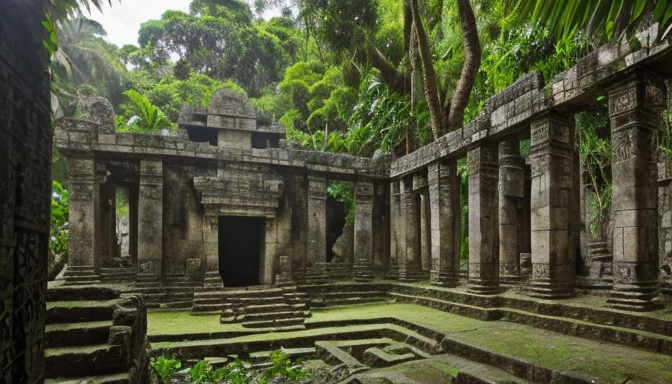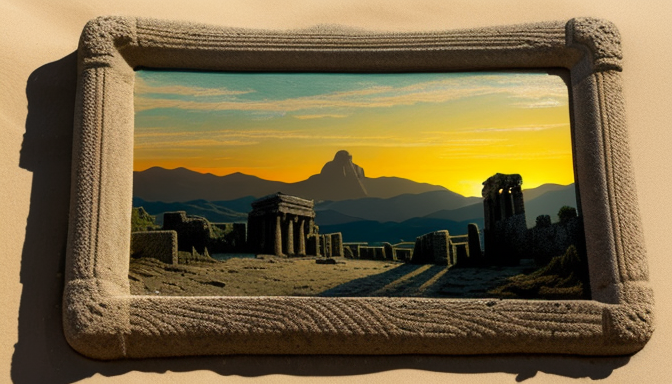Throughout history, the tales of lost civilizations have ignited our imagination and curiosity. These myths are not just mere stories; they are reflections of our desire to uncover the mysteries of the past. From the sunken city of Atlantis to the enigmatic Mayan civilization, these legends have inspired countless explorations and theories. What is it about these ancient tales that pulls us in like a moth to a flame? Perhaps it’s the thrill of the unknown, the possibility of discovering something that could change our understanding of history.
Consider Atlantis, for instance. This legendary city, described by Plato, has been the subject of debate for centuries. Was it a real place, or merely a figment of Plato’s imagination? The allure of its supposed advanced technology and utopian society has led many to embark on quests to find its remnants. Scholars and adventurers alike have chased the dream of uncovering Atlantis, each contributing to the rich tapestry of myths surrounding it. Could it be that the search for Atlantis is less about finding a lost city and more about seeking a piece of ourselves?
Similarly, the Mayans present a fascinating puzzle. Their civilization, known for its remarkable achievements in mathematics, astronomy, and architecture, mysteriously declined. Theories abound—ranging from environmental factors to societal collapse—yet the true reason remains elusive. This enigmatic disappearance invites us to ponder: what lessons can we learn from their rise and fall? The Mayan legacy continues to captivate, reminding us that even the most advanced societies can face unforeseen challenges.
The Allure of Atlantis
The legend of Atlantis is more than just a tale; it’s a doorway into our collective imagination. This mythical island, described by the philosopher Plato, has sparked the curiosity of countless explorers, historians, and dreamers. But what is it about Atlantis that keeps us coming back for more? Is it the idea of a lost utopia, a civilization advanced beyond its time, or perhaps the thrill of the unknown? Just like a treasure map leading to hidden riches, the story of Atlantis is layered with intrigue and speculation.
Many have tried to pinpoint its location, suggesting places ranging from the Mediterranean to the Caribbean. Each theory adds a new layer to the myth, making it even more enticing. For instance, some believe that the island was swallowed by the sea due to a catastrophic event, while others argue it was merely a philosophical allegory. The allure of finding Atlantis lies not just in its potential existence, but in the journey of discovery itself.
So, why do we keep returning to this ancient myth? Perhaps it’s because Atlantis represents our deepest desires for knowledge and exploration. It’s a reminder that there are still mysteries waiting to be uncovered in our world. And who knows, maybe the next great adventure lies just beneath the waves, waiting for someone brave enough to dive in and seek the truth.

The Mystery of the Mayans
The decline of the Mayan civilization is like a thrilling mystery novel that leaves us on the edge of our seats, yearning for answers. Imagine a society that once flourished with breathtaking cities, intricate calendars, and profound astronomical knowledge, suddenly vanishing into thin air. What could have possibly caused such a dramatic turn of events? Theories abound, and each one is more captivating than the last.
Some historians argue that environmental factors played a significant role. Picture this: a civilization that thrived in harmony with nature suddenly faces severe droughts and deforestation. The delicate balance is disrupted, leading to food shortages and social unrest. Others suggest that internal conflicts and warfare could have shattered their once-unified society. It’s as if the Mayans were caught in a storm, battling both nature and each other.
Moreover, the Mayans left behind a rich tapestry of myths and legends that continue to spark our imagination. Their pantheon of gods, each representing different aspects of life and nature, tells us about their beliefs and values. For instance, the god Kukulkan, depicted as a feathered serpent, symbolizes the connection between the earth and the sky. These stories not only enrich our understanding of their culture but also invite us to ponder the deeper questions of existence.
In essence, the mystery of the Mayans is not just about their disappearance; it’s a reminder of the fragility of civilizations. Just like a captivating story that leaves us pondering its meaning, the Mayan legacy challenges us to reflect on our own society and its vulnerabilities. What lessons can we learn from their rise and fall? The answers may lie in the whispers of the past, waiting to be uncovered.
Frequently Asked Questions
- What is the legend of Atlantis?
The legend of Atlantis is a captivating tale about a powerful and advanced civilization that supposedly sank into the ocean. Originating from the works of Plato, it has sparked endless debates and theories about its existence and location.
- Why did the Mayan civilization decline?
The decline of the Mayan civilization is shrouded in mystery, with theories ranging from environmental changes to warfare. Their advanced society left behind incredible achievements, making their disappearance all the more intriguing.
- Are there any archaeological discoveries related to lost civilizations?
Yes! Archaeologists continue to uncover fascinating artifacts and ruins that provide insights into lost civilizations. Each discovery adds a piece to the puzzle of our understanding of human history.
- How do myths about lost civilizations influence modern culture?
Myths about lost civilizations inspire literature, films, and even video games. They fuel our imagination and curiosity, making us ponder what secrets the past may hold and how they shape our present.
- Can lost civilizations teach us anything today?
Absolutely! Studying lost civilizations can offer valuable lessons about sustainability, societal structure, and the consequences of environmental neglect, helping us navigate our own challenges.

Recent Comments